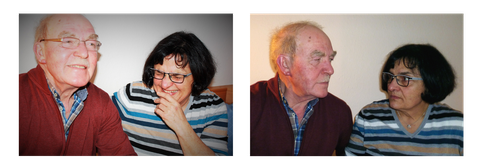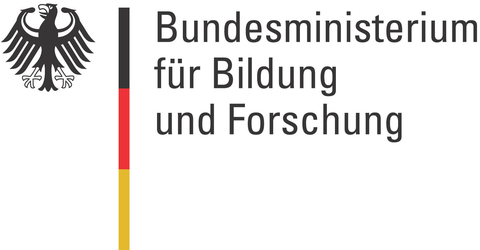Emotional Development
Psychophysiological mechanisms of socio-emotional processes in adult development
Theoretical Background
Exchange of socio-emotional information and inference about others‘ mental states are important functions of social cognition. What is the mood of the person I am interacting with? What are his/her intentions - can I trust this person? The appropriate interpretation of socio-emotional signals (e.g. facial expressions of emotions) and behavior (e.g. other people’s advice) as well as adapting our own behavior flexibly to these social singals is central for social interactions. First findings in the field of aging research indicate that these mechanisms might change over the course of the lifespan. However, so far the psychophysiological mechanisms of these age-related changes are not yet well understood.
Methods and Project Aims
This project is a subproject of the EMOTISK consortium funded by the German Federal Ministry of Education and Research. We aim to investigate the underlying mechanisms of age-related changes in socio-emotional processing and adaptation both on the behavioral and the neural level. To this end, we use behavioral experiments and computational modeling of behavior combined with electroencephalography and eye tracking.
In cooperation with other projects in the EMOTISK consortium that are being conducted at Universities of Aachen, Berlin, Cologne and Potsdam, we aim to develop an adaptive computer system to train socio-emotional functioning in different populations including older adults.
Principal Investigator and Team
Prof. Shu-Chen Li, Ph.D
Assistant-Prof. Dr. Ben Eppinger
Dr. Andrea Reiter
Collaborators
- Dr. Andreea Diaconescu, Translational Neuroimaging Unit, ETH Zürich, Switzerland
- PD Dr. Philipp Kanske, Max Planck Institute for Human Cognitive and Brain Sciences Leipzig, Germany
- Prof. Isabel Dziobek, Humboldt-Universität zu Berlin
- Prof. Ulrike Lucke, University of Potsdam
- Jun. Prof. Martin Schulte-Rüther, University Hospital Aachen
- Prof. Kai Vogeley, University Hospital Köln
Selected Project-related Publications
-
Bolenz, F., Reiter, A. M. F., & Eppinger, B. (2017). Developmental Changes in Learning: Computational Mechanisms and Social Influences. Frontiers in Psychology, 8:2048. doi:10.3389/fpsyg.2017.02048
-
Reiter, A.M.F., Kankse, P., Eppinger, B., Li, S.-C (2017). The aging of the social mind - differential effects on components of social understanding. Scientific Reports 7, 1104, doi:10.1038/s41598-017-10669-4
- Li, S.-C. & Rieckmann, A. (2014). Neuromodulation of aging: implications of aging neuronal gain control on cognition. Current Opinion in Neurobiology, 29, 148-158. doi: 10.1016/j.conb.2014.07.009
- Rocke, C., Li, S.-C. & Smith, J. (2009). Intraindividual variability in positive and negative affect over 45 days. Do older adults fluctiate less than younger adults?. Psychology and Aging, 24(4) , 863-878. doi: 10.1037/a0016276
Vom Emotionsmodell zum Adaptiven Lernen: Emotionssensitive Systeme zum Training Sozialer Kognition (Förderkennzeichen 16SV7243)


